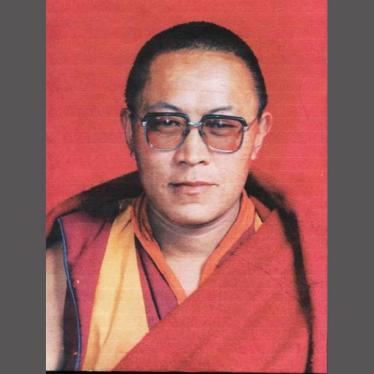(New York) -- Chinese authorities should immediately provide urgent medical care to Tashi Phuntsog, a Tibetan monk who was released from prison on January 6, Human Rights Watch urged today. The imprisoned monk, who is in his mid-forties, suffered serious physical deterioration in prison and is no longer able to walk or to speak clearly.
The Chinese authorities released Tashi Phuntsog after he served two years and nine months of his seven-year sentence.
“Tashi Phuntsog entered prison as a healthy man in his early forties, and he was cast out literally as a broken man”, said Brad Adams, Asia director for Human Rights Watch. “We welcome Tashi Phuntsog’s early release, but Chinese officials have to explain how they allowed this to happen to someone in their custody.”
Typically, Chinese prisoners in need of medical attention must pay for these services while in prison or after going free.
Tashi Phuntsog was detained on April 17, 2002, 10 days after Tenzin Delek, the locally renowned lama with whom he worked, was seized in a night-time raid. Tenzin Delek was later tried in a flawed proceeding and given a death sentence suspended for two years for “causing explosions [and] inciting the separation of the state”. His alleged co-conspirator was executed on January 26, 2003, immediately following a high court review of the case. Human Rights Watch documented the irregularities surrounding Tenzin Delek’s arrest and conviction in its February 2004 report, “Trials of a Tibetan Monk.”
Chinese authorities intensely questioned Tashi Phuntsog, described as Tenzin Delek’s “right-hand man,” for 10 days before they detained him, sources told Human Rights Watch. Nothing else is known about the charges against him, the evidence presented, the trial, or details of his treatment in prison in Dartsedo (Kangding in Chinese), the prefectural capital of the Kardze Tibetan Autonomous Prefecture in Sichuan province. In the years leading up to both men’s arrests, Tashi Phuntsog was instrumental in stopping a government deforestation program in Kardze. In 1998, after Tenzin Delek hid to avoid arrest for trying to improve his community’s educational facilities and social service net, Tashi Phuntsog helped persuade officials that Tenzin Delek should be allowed to return home.
“Now it’s Tashi Phuntsog who needs help. He needs immediate competent medical attention, either in a hospital or at home.” said Adams. “Here is a man who dedicated much of his life to preserving the culture and physical environment of Tibetan areas, and he was physically broken while being held by Chinese authorities. The Chinese government should do all it can to make restitution to him for his suffering.”
Only one other person associated with the Tenzin Delek case remains in prison. Lobsang Taphel, a local businessman, has served one and a half years of his five-year term. The official charges against him are still unknown. Chinese authorities briefly detained at least 60 other associates of Tenzin Delek for questioning. Three monks received administrative sentences of one year in “re-education through labor” camps. An elderly village head sentenced to a five-year prison term was released after serving 13 months. At the time of his release, he could barely walk and he had trouble seeing and eating. Two other associates of Tenzin Delek were reportedly severely beaten while detained for questioning, and one of them sustained kidney problems that kept him bedridden for six months.
The two-year suspension of Tenzin Delek’s death sentence expires on January 26. On December 30, China’s official news agency Xinhua reported that the chief warden at Chuangdong Prison said that Tenzin Delek, as an inmate, had followed prison rules and committed no further crimes. Chinese law provides that in such cases, the death sentence usually is commuted to life imprisonment.







